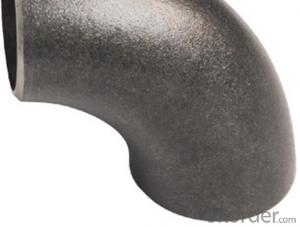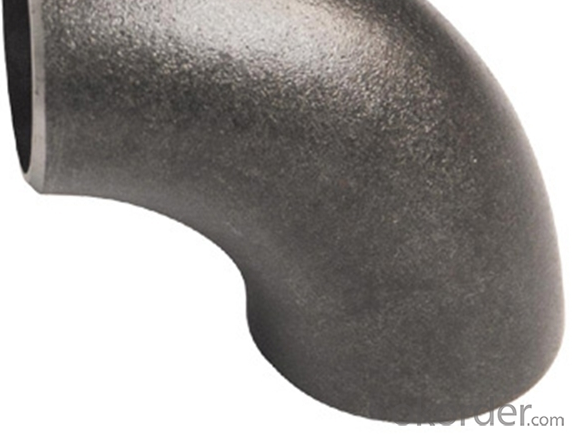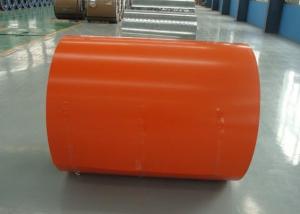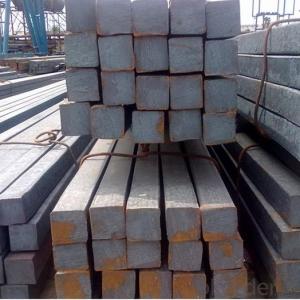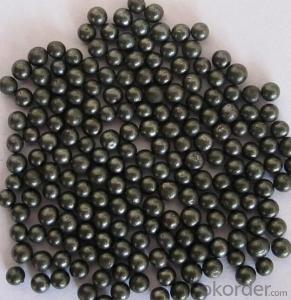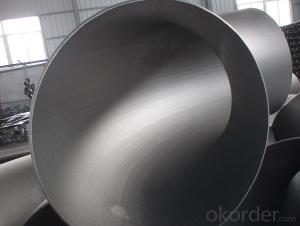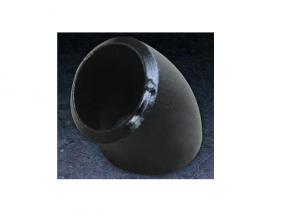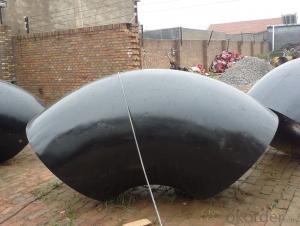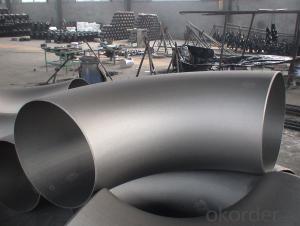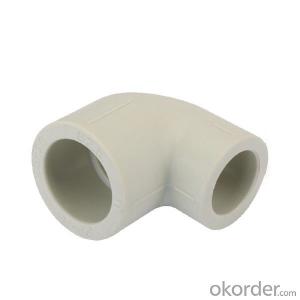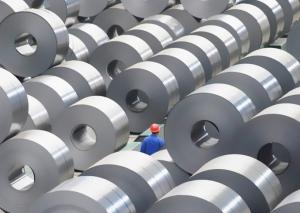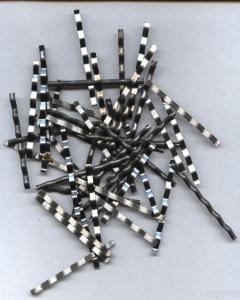Carbon steel pipe fittings elbow,with best quality
- Loading Port:
- Tianjin
- Payment Terms:
- TT OR LC
- Min Order Qty:
- 100 kg
- Supply Capability:
- 10000 kg/month
OKorder Service Pledge
OKorder Financial Service
You Might Also Like
Carbon steel pipe fittings elbow ,with best quality
Std:ASME B16.9
Materials: SS,CS,AS
Size: 1/2''-72''
Cert.: API,ISO,CE,BV
Product | 90 degree elbow |
Size range | 1/2"-24" are made by seamless pipes, above up to 72" are made by welded pipes |
Thickness | SCH20 SCH40 STD SCH60 SCHXS SCH80 SCH160 SCHXXS etc are available |
Angle&Radius | 90 degree, r=1.5d (long radius) |
Standards | ASTMA234,ASTM A420,ANSI B16.9/B16.28/B16.25,ASME B16.9, |
Materials | stainless steel/carbon steel/aloy steel |
Connection | BW,SW,TH |
Surface | Stainless steel elbow:Polishing, Sand-blasting Carbon/Alloy steel elbow: Black painting,varnish paint, anti rust oil, hot galvanized, cold galvanized, 3PE,etc. |
Application | Petroleum, chemical, power, gas, metallurgy, shipbuilding, construction, etc |
Package | Plastic film, wooden cases ,wooden pallet, or according to customers' request |
Certificate | API, and ISO9001:2000 Certificates,CE,BV, etc. |
Capacity | 50000tons/year |
Advantages | 1.Reasonable price with excellent quality |
Port of loading | Xingang (Tianjin) port |
Payment Terms | 30% down payment, the balance 70% T/T before the shipment Or L/C at sight. |
Delivery Time | 7-30 days, according to the order quantity |
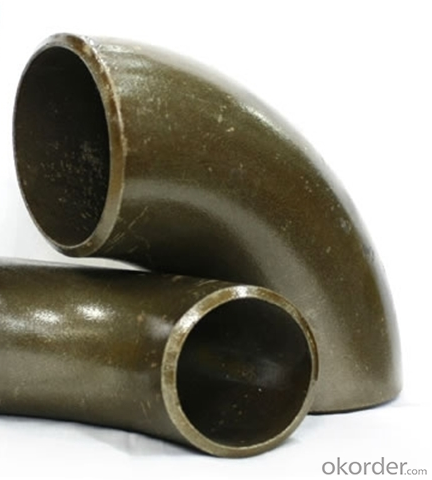
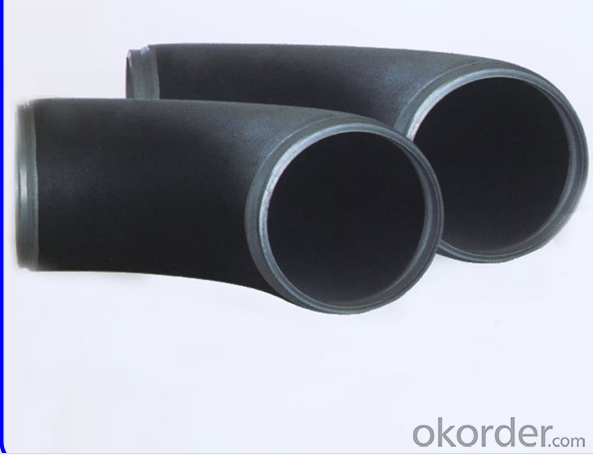
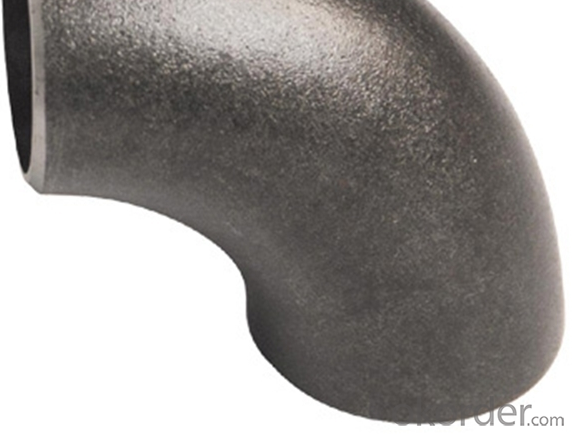
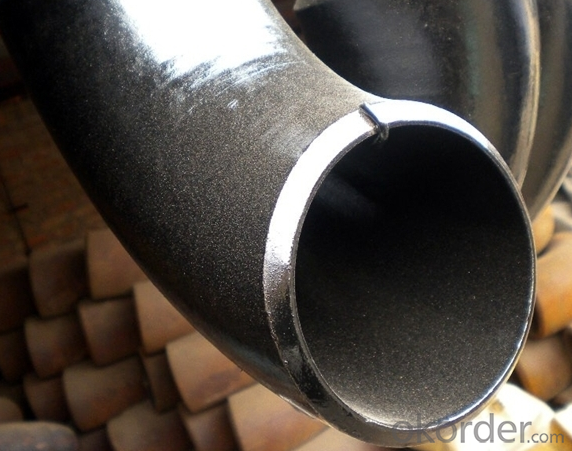
CNBM International Corporation (CNBM International) is the most important trading platform of CNBM Group Corporation, a state-owned company under the direct supervision of State-owned Assets Supervision and Administration Commission of the State Council.
CNBM International is highly recognized by its business partners and clients all over the world and has obtained rapid development under the spirit of win-win. We will carry on the mutual beneficial, innovative and revolutionary trading structure as we did before, create value for our employees, share holders and clients and benefit the whole society in our future development.
- Q: How are steel forgings used in heavy machinery and equipment?
- Steel forgings are used in heavy machinery and equipment primarily for their superior strength, durability, and reliability. These forgings, made by shaping and compressing the steel under extreme heat and pressure, provide the necessary structural integrity to handle high loads and withstand harsh operating conditions. They are commonly used in components such as gears, shafts, crankshafts, and connecting rods, ensuring optimal performance and longevity of heavy machinery and equipment.
- Q: How are steel products used in the construction of airports and terminals?
- Steel products are used extensively in the construction of airports and terminals due to their durability, strength, and versatility. Steel is used for structural components such as columns, beams, and trusses, providing a strong framework for the airport or terminal building. Steel is also used for roofing and cladding, ensuring weatherproof and long-lasting exteriors. Additionally, steel is utilized in the construction of bridges, walkways, and canopies, providing a safe and functional infrastructure for passengers and staff. Overall, steel products play a crucial role in the construction of airports and terminals by providing reliable and efficient solutions for various architectural and structural requirements.
- Q: How is steel used in the production of electrical appliances and wiring?
- Steel is commonly used in the production of electrical appliances and wiring as it provides a strong and durable framework for various components. It is often used in the construction of appliance casings, motor housings, and brackets, ensuring the safety and protection of internal electrical components. Additionally, steel is used in electrical wiring as a support structure, providing strength and stability to carry and distribute electricity effectively.
- Q: How does steel pipe coating for underground applications work?
- Steel pipe coating for underground applications typically involves a multi-step process that begins with surface preparation, where the pipe is cleaned and any existing corrosion is removed. After that, a primer is applied to enhance adhesion and prevent further corrosion. The next step is the application of a fusion-bonded epoxy (FBE) coating, which is cured through heat. This FBE coating provides excellent protection against corrosion and abrasion. Additionally, an outer layer of polyethylene or polypropylene is often applied for additional mechanical protection. Overall, this coating process ensures the durability and longevity of the steel pipe in underground environments.
- Q: How are steel products used in the oil and gas industry?
- Steel products are extensively used in the oil and gas industry due to their durability and strength. They are utilized in various applications such as pipelines, drilling equipment, storage tanks, and offshore structures. Steel pipes are used to transport oil and gas over long distances, while steel tanks provide storage for these resources. Additionally, steel is used in the construction of drilling rigs, platforms, and other offshore facilities, as it can withstand harsh environmental conditions. Overall, steel products play a crucial role in ensuring the safe and efficient extraction, transportation, and storage of oil and gas.
- Q: What are the applications of steel wire mesh in acoustic panels?
- Steel wire mesh is commonly used in acoustic panels to provide structural support and stability. It helps to strengthen the panels and prevent warping or sagging over time. Additionally, the wire mesh can contribute to the absorption and diffusion of sound waves, enhancing the panel's acoustic performance. The mesh acts as a barrier, reducing sound transmission through the panel and improving sound insulation.
- Q: What are the different types of steel products used in the manufacturing of kitchen appliances?
- There are various types of steel products used in the manufacturing of kitchen appliances, including stainless steel, carbon steel, and galvanized steel. Stainless steel is the most common choice due to its durability, resistance to corrosion, and aesthetic appeal. Carbon steel is often used for cookware due to its excellent heat distribution and retention properties. Galvanized steel, on the other hand, is primarily used for the external components of kitchen appliances, providing strength and protection against rust.
- Q: What are the different types of steel products used in the manufacturing of cleaning equipment?
- There are several different types of steel products commonly used in the manufacturing of cleaning equipment. Some of these include stainless steel, which is highly resistant to corrosion and staining, making it suitable for applications where cleanliness is essential. Carbon steel is another commonly used type, known for its strength and durability. It is often used for heavy-duty cleaning equipment that requires a strong and robust construction. Additionally, galvanized steel can be used for cleaning equipment exposed to moisture or harsh environments, as it is coated with a protective layer that prevents rusting.
- Q: What are the properties of weather-resistant steel?
- Weather-resistant steel, also known as corten steel, possesses several properties that make it ideal for withstanding harsh weather conditions. Firstly, it forms a protective oxide layer on its surface, which acts as a barrier against corrosion and prevents the steel from rusting. Additionally, this steel has high tensile strength, allowing it to withstand strong winds and impacts. It also has good weldability, making it easy to fabricate and work with. Moreover, weather-resistant steel is durable and requires minimal maintenance, making it a cost-effective choice for outdoor structures and buildings.
- Q: What are the different types of steel roofing systems?
- There are several different types of steel roofing systems available, including standing seam, corrugated, and stone-coated steel. Each type offers its own unique benefits and aesthetic appeal.
Send your message to us
Carbon steel pipe fittings elbow,with best quality
- Loading Port:
- Tianjin
- Payment Terms:
- TT OR LC
- Min Order Qty:
- 100 kg
- Supply Capability:
- 10000 kg/month
OKorder Service Pledge
OKorder Financial Service
Similar products
Hot products
Hot Searches
Related keywords
